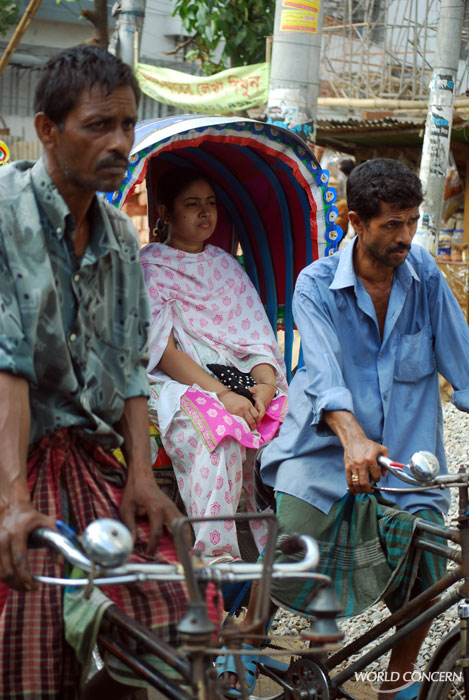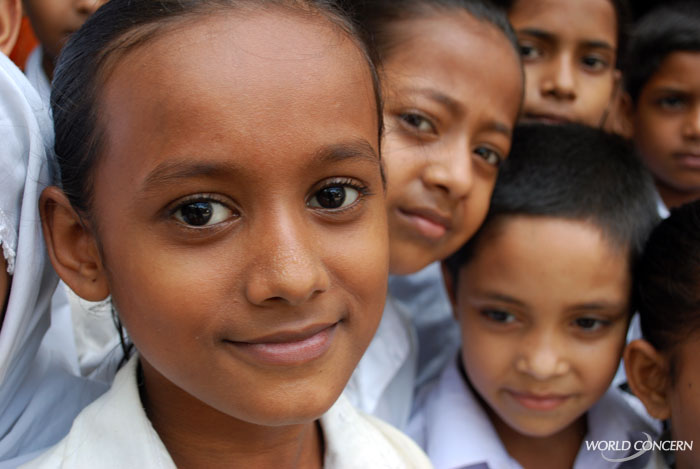Humanitarian Aid
An American's Impression of Bangladesh

Men muscle 3-wheeled rickshaws through the streets of Dhaka, Bangladesh. The average income for a Bangladeshi: $1,500 a year.
I arrived in Dhaka at the peak of the summertime, where my sweat-drenched shirt never dries in the near 100 degree heat, and the power seems to go out every few hours (like it did as I typed this sentence).
During my first five minutes in Bangladesh, beggars approached us as we walked to our vehicle at the airport, then more beggars asked for our help as we drove on the streets. Crammed among the cars are 3-wheeled rickshaws driven by thin chauffeurs. If they're not waiting for a customer, they're standing on the pedals, straining against a load.
Other countries where I have documented World Concern's humanitarian work face more significant problems with infrastructure. In Haiti, some roads in the city are in such disrepair, it is like they had never been leveled or paved. In fact, it was simply years of neglect—coupled with some storms. Dhaka generally has nicely paved streets, and many homes and businesses have power, outside of the frequent blackouts. In Kenya, access to clean water seemed like a greater need than here, though I have not yet seen conditions in the poorest homes made of scrap wood and sheet metal.
This is not to say Bangladesh does not have great need. I can see it in the man without legs who instead walks with his hands. I see it in the older gentlemen crouched on the hot sidewalk, without eyes, who was hoping that somewhere in the blackness, people would provide him with coins for a bowl of rice. The average income here: $4 a day.
Outside the wall of a World Concern-sponsored school that was in session, I see the need in the children without shoes or uniforms, who play marbles in the dirt instead of learning how to read in a classroom. Like in many places where we work, schooling here is not guaranteed. It is usually only a privilege for the wealthy, or for those benefiting from an organization like ours. We give 5,000 children an opportunity they may not have otherwise had.
I was not able to find a guidebook about Bangladesh prior to my trip here to document programs. It is the least Western country I have visited, with no familiar stores or advertisements, and very little English on signs outside of on the primary thoroughfares. From what I've seen so far, I suspect there are very few people from the West who visit Dhaka, which means less foreign investment, both financially, and in awareness of the country. Did you know Bangladesh is more populated than Mexico or Russia?
So far I have visited a medical clinic and a school, both packed with people and highly regarded in the community. Once again I am pleased to see World Concern working in areas of intense poverty. Though Christians amount to about one half of one percent of the population, I see the hands of Christ working through our humanitarians, both employees and volunteers. They touch the lives of those in desperate need of compassion.

Beautiful children outside a World Concern school in Dhaka, Bangladesh. We have a special interest in seeing girls have an availabilty to education.